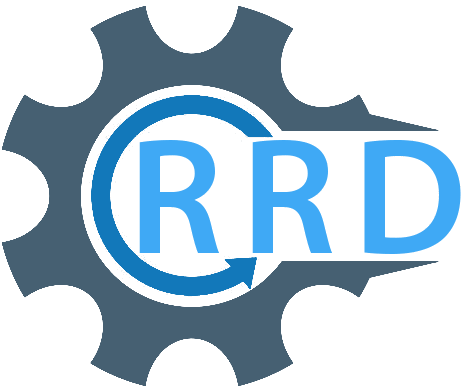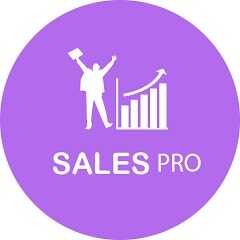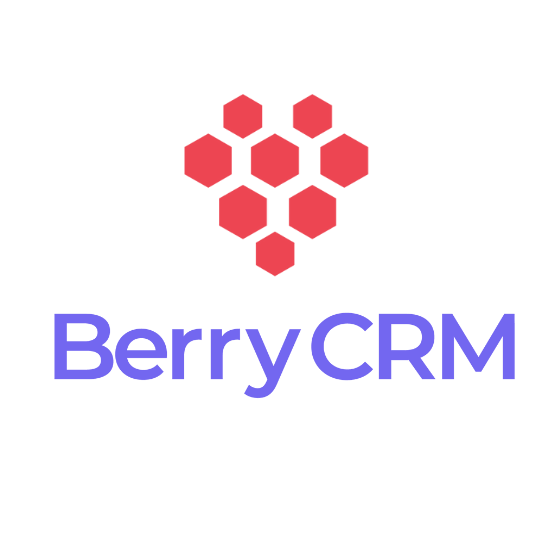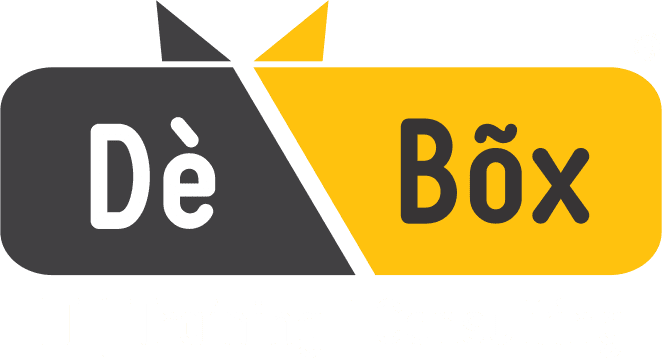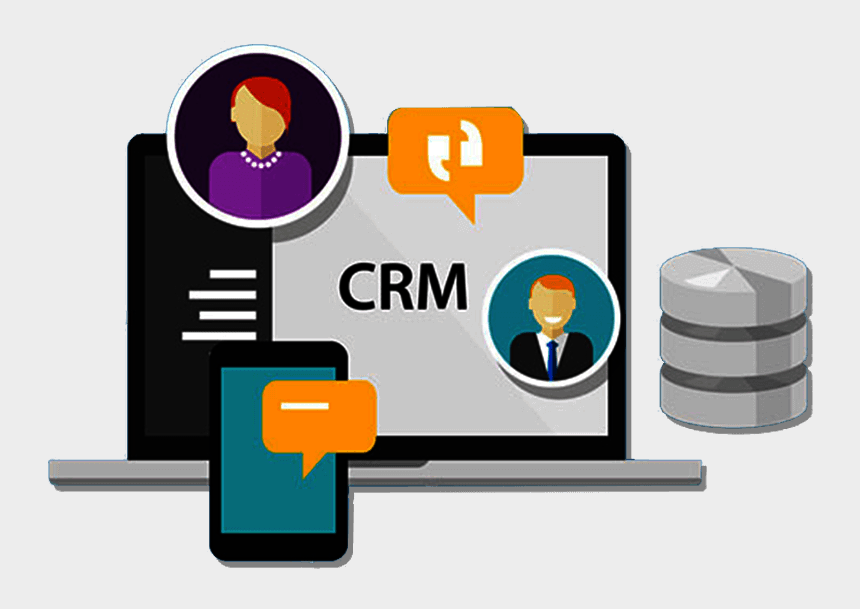What Is Sales CRM Software?
Sales CRM Software, also known as Customer Relationship Management Software, is a crucial tool for firms looking to manage their sales processes more efficiently. It is a system that enables businesses to track, engage, and analyze consumer interactions and data throughout the sales process. Simply put, it is a one-stop solution for businesses to handle their leads, contacts, and deals all in one spot.
The major goal of Sales CRM software is to streamline and automate sales processes, allowing firms to increase productivity, shorten sales cycles, and drive revenue development. With its powerful features, it serves as a central center for all customer information, allowing sales teams to access real-time data, make informed decisions, and tailor communication to client interests and behaviors.
One of the primary advantages of Sales CRM Software is the ability to track client interactions across several channels, including phone conversations, emails, social media, and website visits. This provides organizations with significant information into customer preferences and purchasing trends, allowing them to modify their sales strategy accordingly. Furthermore, Sales CRM Software includes capabilities such as lead and contact management, deal tracking, pipeline management, and reporting, which help firms stay organized, cooperate effectively, and track the success of their sales activities.
In addition to basic functionality, many Sales CRM Software has advanced capabilities such as artificial intelligence, sales forecasting, territory management, and connectivity with other business tools, making it a valuable tool for firms of all sizes. When shopping for Sales CRM Software, buyers should examine their individual requirements, budget, and the software's usability and compatibility with their existing systems. They should also seek for features that will help them meet their sales targets and enhance their entire consumer experience.
What Are The Recent Trends In Sales CRM Software?
In recent years, the sales CRM (customer relationship management) software sector has experienced substantial growth and development. As businesses increasingly rely on technology to manage their sales processes, CRM software has emerged as a critical tool for enterprises of all kinds. With such quick development, buyers must keep up with the latest developments in sales CRM software.
The following are some major trends that have emerged in recent years.
1. Artificial Intelligence: AI has become a prominent topic in the computer industry, and it has found its way into CRM software. Many sales CRM solutions now leverage AI to automate tedious operations like data input and lead nurturing, allowing your sales force to focus on higher-value activities. AI-powered sales forecasting is also gaining popularity, as it allows firms to generate more accurate predictions and estimates.
2. Mobile Optimization: With the proliferation of remote work and mobile technologies, it's no surprise that sales CRM software is becoming more mobile-friendly. In addition to being available on smartphones and tablets, many CRM solutions provide mobile apps with additional features such as geotagging and voice-to-text capabilities. This enables sales teams to stay connected and productive on the fly.
3. Integration With Other Tools: Sales CRM software increasingly includes integrations. This enables firms to integrate their CRM with other essential tools like email marketing software, communication platforms, and project management systems. Integrated CRM solutions may dramatically improve efficiency and productivity by removing data silos and establishing a unified workflow.
4. Personalization: Today's consumers have high expectations for tailored experiences. In response, sales CRM software has grown to include more personalized features and capabilities. This includes tailored dashboards, targeted messaging, and personalised content for each stage of the sales funnel. Businesses may enhance engagement and close more deals by personalizing the sales process to each unique consumer.
5. Social Media Integration: Social media has evolved into an effective tool for sales and marketing. Sales CRM software now includes robust social media connectivity, allowing firms to manage and engage with prospects and consumers on several platforms. This integration also provides useful information, such as customer sentiment research, which can help shape sales plans and techniques.
Benefits Of Using Sales CRM Software
Sales CRM software is a strong tool that may help organizations of any size. This program is specifically developed to streamline and optimize the sales process, allowing firms to improve efficiency, productivity, and income.
If you're thinking about investing in sales CRM software, here are a few major advantages to consider:
1. Centralized Data Management: One of the most significant benefits of employing sales CRM software is the ability to consolidate all customer data into a single location. This means no more sifting through several spreadsheets or databases to uncover relevant information. A CRM system enables you to store and access all client data, including as contacts, interactions, and sales history, in a one area.
2. Increased Sales Pipeline Visibility: A CRM system allows you to quickly follow every stage of the sales process, from lead creation to completing a deal. This visibility enables sales teams to discover bottlenecks and areas for improvement, making the sales process more efficient and resulting in more deals closed.
3. Automation Of Processes: Sales CRM software includes automation capabilities, allowing firms to automate normal and repetitive processes. This allows sales teams to devote more time to more critical responsibilities, such as developing customer connections and closing deals.
4. Improved Lead Management: A sales CRM system allows firms to successfully manage leads by tracking their interactions and activity. This enables sales teams to identify the most promising leads and prioritize them for follow-up, boosting the likelihood of conversion into clients.
5. Improved Collaboration And Communication: Because all team members have access to the same customer data, CRM systems encourage collaboration and communication across sales teams. This prevents duplication efforts and ensures that everyone is on the same page, resulting in a more streamlined and effective sales process.
6. Personalization And Customization: Most sales CRM software includes tools for personalization and customization, allowing organizations to adjust their sales approach to individual consumers. This can help you develop closer ties with clients and boost their satisfaction with your company.
7. Real-Time Analytics And Reporting: A CRM system enables organizations to evaluate sales performance and discover areas for development. This data-driven approach can help organizations make more informed decisions and improve their overall sales strategy.
Important Factors To Consider While Purchasing Sales CRM Software?
Purchasing Sales CRM software is a substantial investment for any firm. It can have a significant impact on your sales operations and, ultimately, your bottom line.
Therefore, it is critical to carefully evaluate the following factors when picking the proper Sales CRM software for your business:
1. Features And Functionality: When selecting Sales CRM software, the first and most important considerations are features and functionality. It should be in line with your business needs and compliment your sales procedures. Key features to look for include lead and contact management, sales pipeline tracking, task management, reporting and analytics, and connectivity with other business tools.
2. User-Friendly Interface: A user-friendly interface is required for CRM software to be adopted and used effectively. Your sales crew should be able to navigate and use the program with little learning curve. Look for a straightforward and intuitive design that makes all of the key functionality easily accessible.
3. Customization And Scalability: Each firm has its own sales procedures and requirements. As a result, it is critical to select Sales CRM software that is fully configurable to meet your individual requirements. It should also be scalable to meet your company's expanding and changing needs.
4. smartphone Accessibility: In today's fast-paced corporate climate, smartphone access is essential for any CRM program. It enables the sales force to access critical information and make key modifications while on the go, dramatically increasing productivity and efficiency.
5. Data Security: Data is a significant asset for any organization and must be safeguarded at all times. As a result, before selecting Sales CRM software, ensure that it has adequate security measures in place, such as data encryption and access control. Also, determine whether the software complies with data privacy rules such as GDPR.
6. Integration Capabilities: Your sales CRM software should work easily with other critical business tools such as email marketing, accounting, and project management software. This connectivity can save time and effort, reduce data duplication, and provide a complete picture of your business processes.
7. Customer Support: Choose a vendor who provides dependable customer service and assistance when needed. It is critical to have a dedicated support team to assist with software setup, training, and troubleshooting, guaranteeing a smooth transition to the new CRM.
8. Pricing: Finally, analyze the sales CRM software's pricing model. Some merchants use a subscription model, while others demand a one-time cost. It is critical to understand the pricing structure and select a solution that is within your budget and provides the most value for money.
What Are The Key Features To Look For In Sales CRM Software?
When it comes to selecting the best sales CRM software for your company, there are a few crucial things to consider. These capabilities can significantly improve your sales process, allowing you to streamline and maximize your efforts.
Here are the key things to look for when selecting a sales CRM software:
1. Contact Management: A decent sales CRM software should provide comprehensive contact management features. This includes the ability to import and manage contacts, track interactions and communication history, and categorize contacts using various criteria.
2. Lead Management: Every sales team has to successfully manage leads. Look for a CRM that has lead tracking, scoring, and nurturing features. The software should also make it easy to transfer prospects through the sales funnel and build up automated follow-up activities.
3. Sales Funnel Management: Sales CRM software should give you a clear and customized view of your sales funnel. This allows you to track deals, forecast sales, and discover areas for improvement in your sales process.
4. Reporting And Analytics: The software should include strong reporting and analytics capabilities, allowing you to analyze key indicators, assess the success of your sales activities, and discover areas for improvement.
5. Integrations: Look for sales CRM software that works with other tools and platforms your team uses, such as email marketing, e-commerce, or project management software. This will allow you to centralize data and streamline your operations.
6. Mobile Access: In today's fast-paced corporate world, you must be able to access your CRM while on the go. Look for a CRM with a mobile app or a responsive web interface that allows you to access critical information and manage your sales process from anywhere.
7. Customization: Each firm has its own sales methods and requirements. As a result, the sales CRM software you choose should be configurable to meet your individual needs. Look for software that lets you develop custom fields, workflows, and reports.
8. User-Friendly Interface: Any CRM software's success is dependent on its user-friendliness. Make sure the software you purchase has a simple and intuitive interface that your staff can learn and utilize.
9. Customer Help: When you run into problems or have queries regarding the product, you need competent customer help. Look for a provider that provides complete support via phone, email, and live chat.
Consider these critical aspects when looking for sales CRM software to assist your team increase productivity, close deals, and drive revenue growth. When comparing several possibilities, keep in mind your specific business demands and budget, and select the program that best meets your needs. With the correct sales CRM, you can improve your sales process and achieve more success.
Why Do Businesses Need Sales CRM Software?
Businesses use sales CRM software to effectively manage and organize their customer interactions and sales operations. This program provides a consolidated platform for organizations to store and analyze data about their leads, customers, and sales operations. One of the primary reasons why firms use sales CRM software is to increase sales efficiency. As competition in the market grows, organizations must be able to conclude agreements faster and more successfully.
CRM software allows sales teams to track leads, schedule follow-up activities, and automate communication with prospects. This results in a more streamlined and effective sales process, which ultimately increases revenue for the company. Another key feature of sales CRM software is its ability to deliver useful insights and analytics. Businesses can better understand their customers' requirements and habits by recording and analyzing customer data such as previous purchases, communication history, and preferences.
This knowledge enables businesses to modify their sales methods and offers to better fit their clients' needs, resulting in higher customer satisfaction and retention. Furthermore, sales CRM software enables organizations to build strong client relationships. Businesses may assure a personalized and good experience for their customers by implementing features such as unique contact databases, personalized communication, and client segmentation.
This not only improves client pleasure but also promotes long-term loyalty. Furthermore, sales CRM software is essential for managing and enhancing the sales funnel. Businesses that provide a clear overview of sales activities can spot bottlenecks and make required changes to optimize their sales operations. This also allows them to estimate sales and create achievable goals for their workforce. In today's digital age, having mobile-compatible sales CRM software is growing more vital.
Businesses that use cloud-based solutions can access their CRM data at any time and from any location, enabling remote and flexible sales operations. Overall, sales CRM software provides numerous benefits to firms, including enhanced sales efficiency, better customer insights, improved customer connections, an optimized sales pipeline, and the flexibility to react to the ever-changing digital landscape. Investing in strong sales CRM software is critical for organizations that want to remain competitive and develop in today's fast-paced environment.
How Much Time Is Required To Implement Sales CRM Software?
The time necessary to establish sales CRM software varies depending on a number of factors, including the size and complexity of your company, the features and customization required, and your team's preparedness to accept the new system. On average, the installation phase can last anywhere from a few weeks to a few months. Before selecting CRM software, you should first examine your business's objectives and goals.
This will assist you in selecting a platform that is matched to your individual needs and capable of efficiently streamlining your sales process. It is also critical to include your sales team in the decision-making process to guarantee their buy-in and support during the implementation phase. Once you've decided on a CRM program, the following step is to configure the system to fit your organization's structure and process.
This includes establishing a database of your contacts, importing existing data, and customizing fields and labels to match your company language. Depending on the size of your firm and the amount of data to be migrated, this stage can take a few days to a few weeks. The next step is to train your sales team on how to use the new CRM software efficiently.
This includes introducing them to the features and functionalities, as well as offering hands-on training and practice sessions. The amount of time required for training varies depending on the complexity of the software and the level of skill of your staff. The final stage of the implementation process is to go live with the new CRM software. This is a vital phase in ensuring that all data has been accurately transferred and that the system is running properly.
It is also advisable to have a backup plan in case of any unexpected problems during the go-live procedure. After the system is up and running, it may take a few weeks for your staff to become entirely acquainted with it and begin to fully utilize its capabilities.
What Is The Level Of Customization Available In Sales CRM Software?
When it comes to sales CRM software, many firms prioritize personalization. This is due to the fact that each company's sales methods, goals, and data must be managed and analyzed differently. The level of customization available in sales CRM software varies per platform, but businesses should expect a high level of flexibility and personalization.
At its heart, sales CRM software enables customers to define custom fields, workflows, and reports based on their individual requirements. This means that firms can modify the platform to their specific sales process rather than changing their process to fit the software. Some CRM software also has advanced customization features, such as the ability to create new modules or interact with third-party apps.
This enables businesses to extend the functionality of their CRM and tailor it to their own business requirements. In addition, several CRM software providers provide support and tools to help businesses further tailor their platform. This may include access to a team of professionals that can assist with dashboard design, automations, and other customization options.
Overall, the level of flexibility offered by sales CRM software enables firms to design a highly specialized solution that suits their individual requirements. This not only increases the efficiency and efficacy of their sales processes, but also gives them a competitive advantage in the market.
Which Industries Can Benefit The Most From Sales CRM Software?
Sales CRM software, also known as customer relationship management software, is a powerful tool that enables firms to better organize and manage their sales processes, customer interactions, and data. While it may appear to be a solution only for sales teams, the benefits of adopting sales CRM software apply to a wide range of companies and sectors.
1. Retail And E-commerce: Customer happiness is critical in the retail and e-commerce industries, and sales CRM software is an excellent fit for this sector. It enables businesses to track client behavior, purchase history, and preferences, allowing them to tailor their marketing tactics and create a more seamless purchasing experience. In addition, sales CRM software may help with inventory management, order monitoring, and lead management, all of which are important elements in this fast-paced business.
2. B2B And B2C Service Industry: Sales CRM software can have a substantial impact on B2B and B2C service industries such as healthcare, consulting, and finance. These businesses rely largely on developing and maintaining strong customer connections, and a sales CRM system serves as a central repository for all client-related information, interactions, and communications. This information can be utilized to upsell or cross-sell services, improve customer retention, and eventually increase revenue.
3. Real Estate: The real estate market is very competitive, necessitating effective client management and lead generation. Sales CRM software can help to streamline the sales process by automating operations such as follow-ups, appointment scheduling, and lead nurturing. It also enables agents to monitor their contacts with potential consumers, assess their purchasing habits, and adjust their approach accordingly. Overall, sales CRM software may help real estate companies close deals faster and produce more income.
4. Manufacturing Industry: In the manufacturing industry, every transaction is important, and sales CRM software can help increase sales and improve client connections. A sales CRM system allows manufacturers to better monitor their sales pipeline, track orders, and manage their supply chain. This leads to faster delivery and higher client satisfaction, leading in repeat business and higher revenues.
5. Education Industry: The education sector is responsible for managing relationships with parents, alumni, and contributors in addition to student enrollment. With sales CRM software, educational institutions can track and cultivate these relationships, tailor communication, and boost fundraising efforts. It can also help with student recruiting, admissions, and managing course inquiries, making it an important addition to the business.
Conclusion
To summarize, investing in Sales CRM software can significantly benefit your company by reducing operations, increasing efficiency, and strengthening client interactions. With so many options available, it is critical to thoroughly analyze your individual requirements and budget when selecting the best software for your firm. When comparing potential solutions, prioritize capabilities like lead management, contact organization, sales pipeline tracking, and data analytics.
In addition, assess the CRM software's usability and customization features, as well as its connectivity with other tools and systems. It is also critical to conduct extensive research on the software provider's reputation and client reviews to assure dependability and satisfaction. Finally, don't forget to use free trials and demonstrations to gain some hands-on experience before making a decision.
With the correct Sales CRM software in place, you can expect more sales and revenue, better team cooperation and communication, and higher customer satisfaction. So, invest properly and watch your business grow. Thank you for reading this buyer's guide, and we hope it helped you make an informed selection.

